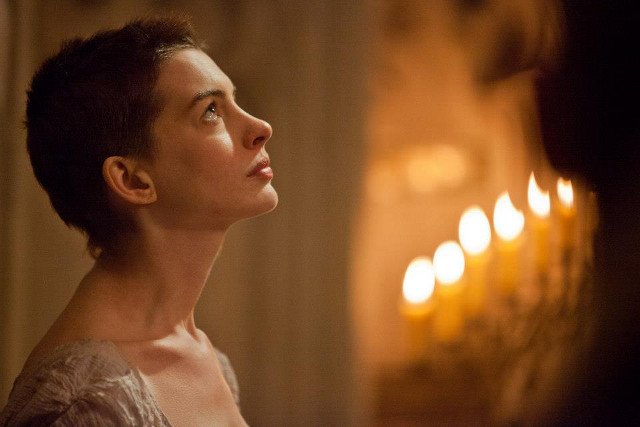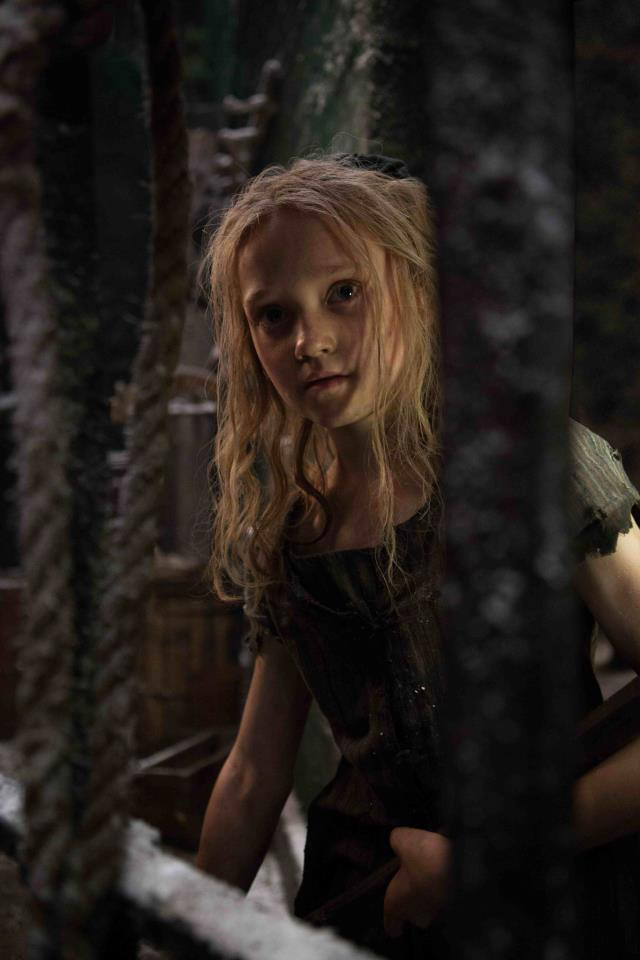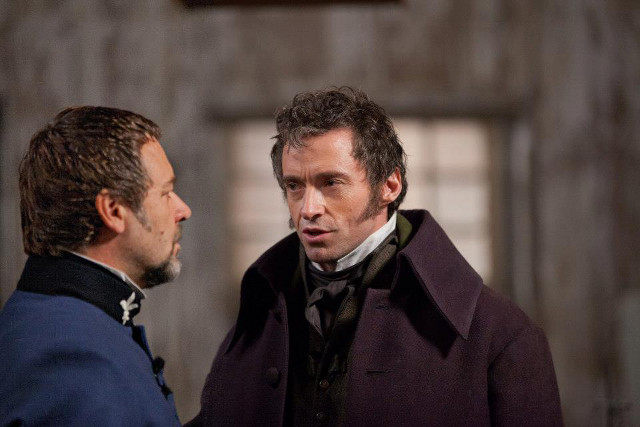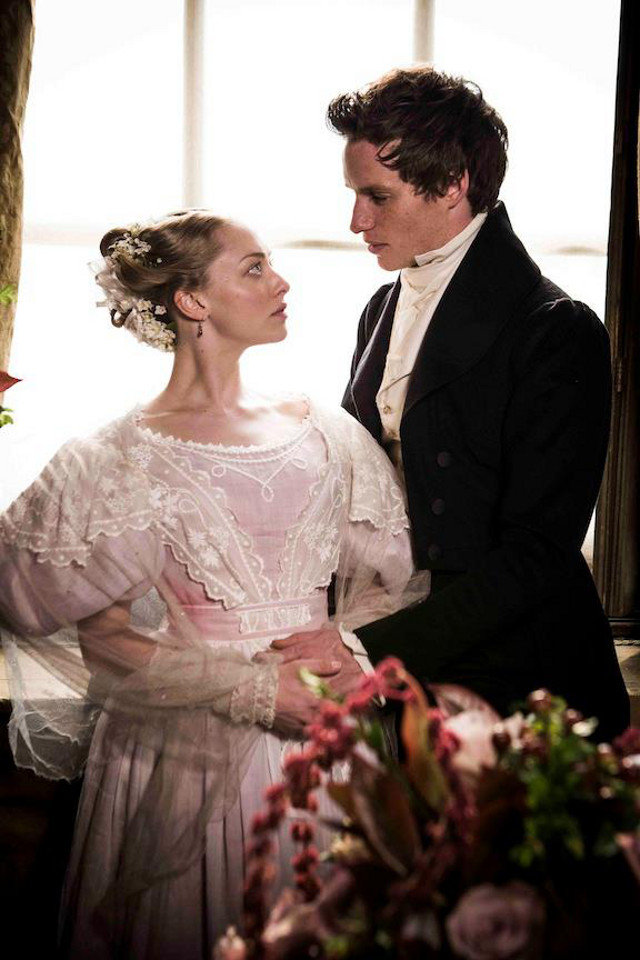SUMMARY
This is AI generated summarization, which may have errors. For context, always refer to the full article.

MANILA, Philippines – If you love the musical and the music, then it doesn’t matter what I say here.
You’ve got your tickets booked. You’ve re-listened to the tracks. You’re going to have to stop yourself from singing along to each number.
And if you hate musicals — and hate movie musicals — then you will hate them even more. If you’re getting dragged to it, then consider this a test of friendship or love; nod and say you love it.
All told though, despite its overlong running time and some laughable staging at times, “Les Miserables” is a monumental film.
ALSO READ: Tom Hooper’s ‘Les Mis’ reinvents the musical film genre
As a film adaptation of a musical theater (adaptation of a novel), it is very clear in Tom Hooper’s directing that there is a deliberate and well-crafted approach to this.
While the story is epic in its scale — and that is reflected in quite a number of scenes, particularly the Paris revolution scenes in the film’s 3rd act — a large part of “Les Miserables” is shot in close-up.
This has a powerful, dramatic effect.

First up, we will never have seen theater versions (if ever we were lucky to see any) from that perspective.
Next is that it establishes our emotional distance to the characters, that distance often painfully close.
Sometimes when we watch the characters struggle through their circumstances, singing close up, their faces uncomfortably close to the camera, and in effect to our own faces and emotions, we feel a connection that few film experiences yield.
Witness then Anne Hathaway’s heartbreaking performance as Fantine, in particular the fantastic rendition of “I Dreamed a Dream” which deserves every bit of attention it has garnered thus far.
If it is not a great bit of film, then I don’t know what is.
Unfortunately, there are other parts of the film that are regrettable.
The opening bits between Jean Valjean and the priest who spares him are shaky. One questions the decision to make certain parts sung, especially when they could have just been spoken and moved the action forward more effectively.
This hurts most when the singing isn’t up to par, as it is with the priest.
And when we speak of singing that is not up to par, sadly we have to talk about Russell Crowe’s performance as Javert.
ALSO READ: Adam Lambert’s ‘Les Mis’ review on Twitter
He never looks comfortable, and I don’t think that it’s the role that he can’t handle — it’s the singing. Have a no-singing Javert and Crowe would have been perfect. But he slogs through the entire film, at worst sometimes sounding like the Swedish Chef from the Muppet show.
It’s only in his last number that he hits the performance, but by then it’s too late. It’s like every time Crowe walks onscreen you know you will be subjected to something unpleasant, and his walking onscreen is often.
Still, despite that performance, we’ve got a wealth of great work here.
As mentioned previously, Hathaway delivers a memorable performance, one that should stand the test of time. Amanda Seyfried doesn’t have too much screen time as Cosette, but when she is there it’s spot-on and she has an exquisite voice.
ALSO READ: Anne Hathaway wins best supporting actress Globe
Cast as her foil is newcomer Samantha Barks as Eponine. And if the audience I watched with were any indication, she is winning in her tragic role (more people reacted sympathetically to her pining than to the wooing of Cosette). Eddie Redmayne’s Marius conveys just the right amount of youthful panache and naivete. Next to his revolutionary comrades, led by Aaron Tveit, we are swept along with the revolution.
Of special note is Daniel Huttlestone, who plays the instigator Gavroche. This kid rocks out his part, snarling in cockney and standing tall among all the other actors.

We can’t end without talking about Hugh Jackman’s Jean Valjean.
To answer all your questions in a word: Yes. The performance is that good. We expect amazing things from him, and he delivers.
From the opening as he is forced to display his strength by Javert, to the confrontation with the priest and his questioning of why the priest spared him, and throughout most of the film, we are drawn to Valjean’s struggles through Jackman’s nuanced performance.
Towards the end it does get a bit funny, when he is dealing with the romance of Cosette and Marius (though that might also have just been the audience I was with). For the most part though, it’s pretty solid.
ALSO READ: Les Misérables’ Hugh Jackman in tears about mom
Also, in parts towards the end (I don’t know if I should say “SPOILER ALERT” because I am assuming most people know the story anyway, which is why I didn’t bother to discuss it) when Fantine appears to him as he drifts to his own death, it seems a bit off.
For the majority of the film, it’s played straight, so I found it off when suddenly Fantine shows up and he’s singing to her, then we see his corpse and Vajean’s spirit walking about and singing.
But I suppose this little thing is just me, and most other people will love that.

In any case, “Les Miserables” is the kind of movie that many people will love. And many people will hate.
Sometimes you feel that it’s indulgent. Sometimes there’s just too much of the damn singing that could have been done away with (oh and now I can imagine angry commenters saying, “You idiot, it’s a musical!”).
But this film adaptation is extremely effective. It employs film techniques to the service of the story of “Les Miserables,” giving us a glorious version of it.
I wouldn’t go so far as to call it fun.
But I would call it powerful and affecting and memorable. – Rappler.com
You can also read:
- Anne Hathaway wins best supporting actress Globe
- Hugh Jackman: Oscar nomination exciting, surreal
- ‘Les Mis,’ ‘Argo,’ ‘Homeland’ top Golden Globes winners
- Anne Hathaway, Hugh Jackman: Under the ‘Les Mis’ spotlight
- Les Miserables, according to the critics
- Going hungry for ‘Les Mis’
- Les Mis actors step out of their roles
Add a comment
How does this make you feel?
There are no comments yet. Add your comment to start the conversation.